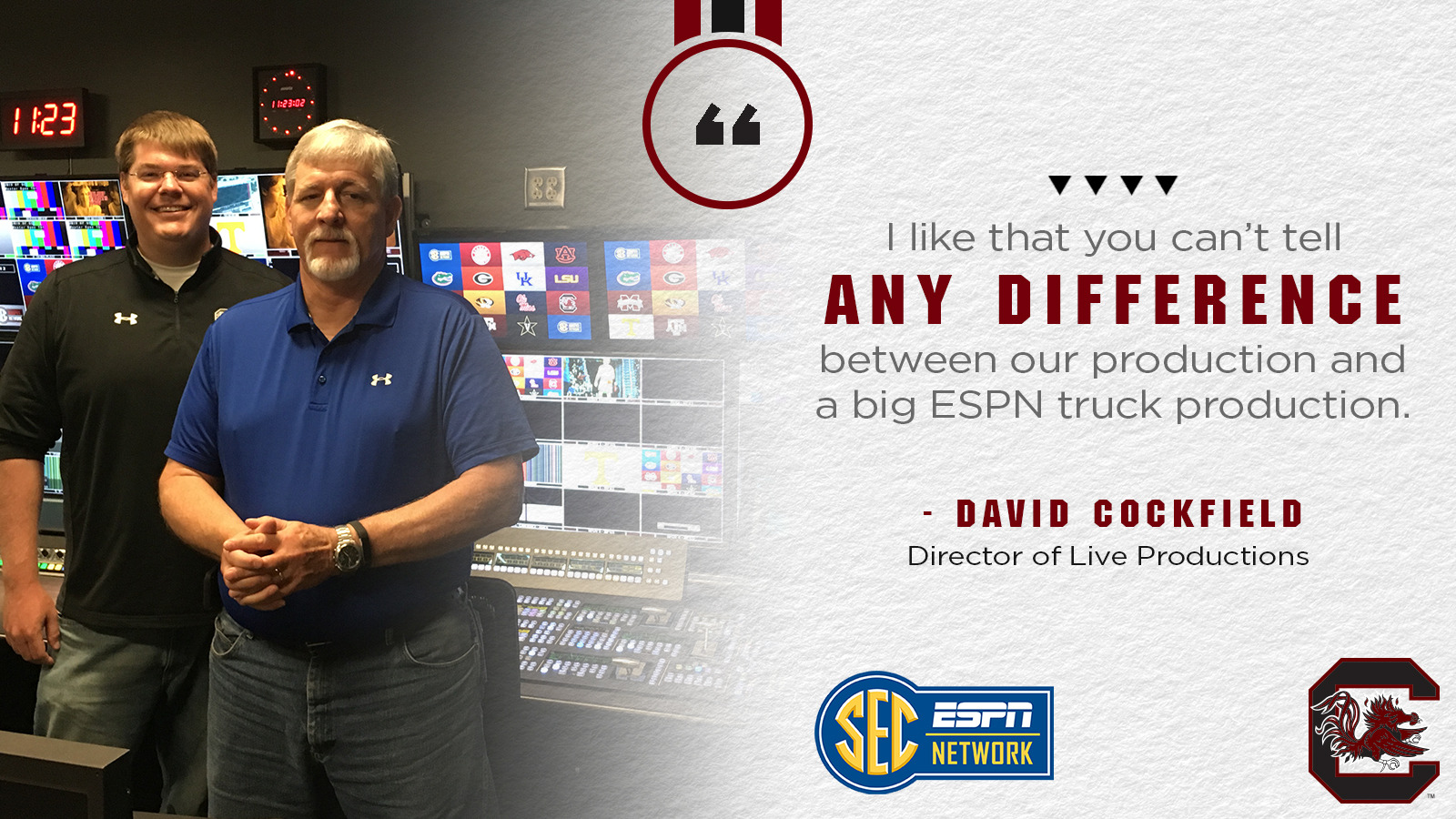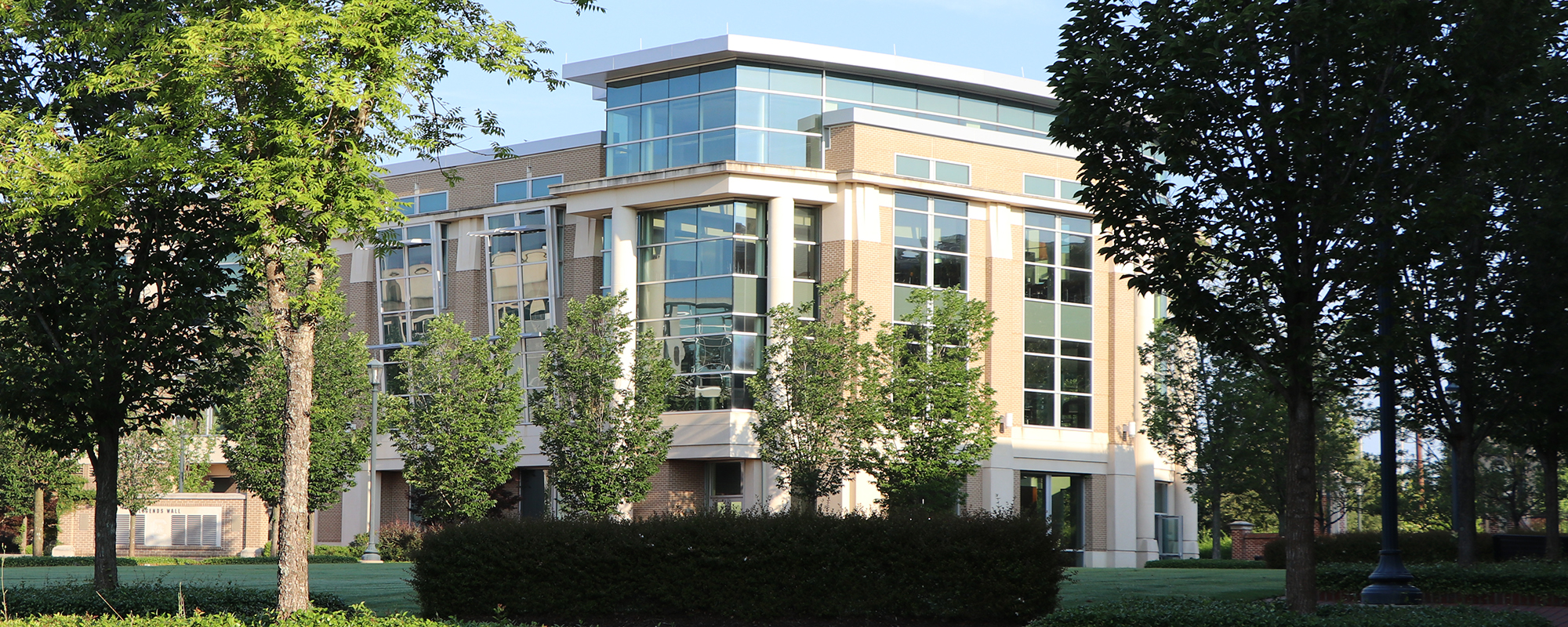
South Carolina Hosts SEC Network Production Seminar
July 11, 2018
As the SEC Network prepares for its fifth year of bringing fans unprecedented access to their favorite teams through the numerous broadcasts of the league’s many sports, those that spend long hours working before, during, and after those competitions are getting together in Columbia. South Carolina is hosting the annual SEC Network School Production Seminar this week, which includes production teams from all 14 of the league’s schools as well as individuals from the SEC Network/ESPN.
“It allows us, from ESPN, a chance to go through our production philosophies and work through the ins and outs of sports television production,” said Andy Green, senior managing producer at ESPN. “The main goal is for it to be interactive. Sports television production is unique in that there isn’t necessarily one way to do it to do it right. In that aspect, it’s good to present different scenarios and talk through how you would want to cover it, and the best way to get it done along with some of the pitfalls and challenges that come up.”
“This is an annual thing where all of the schools in the conference get to meet and share common experiences, and work with the Network on anything they’d like for us to do to make our efforts better,” said David Cockfield, South Carolina’s Director of Live Productions.
“It’s a lot of networking,” added Justin Stoll, South Carolina’s Assistant Director of Live Productions. “We all do the same thing and have common experiences so we can pull from their knowledge on how they’ve worked around a difficult situation and apply it to how we do things here, whether it’s administratively or in dealing with ESPN.”
Since its inception, the SEC Network has broadcast live events for the league’s schools on its linear television platform, and each school is also charged with handling all aspects of sports broadcasts for a minimum of 40 events per year on the digital platform known as SEC Network+. Several schools go well beyond that minimum, and South Carolina has produced as many as 125 broadcasts in a single year. The ability for schools to produce high level network broadcasts from these local crews was shown early on.
It continues to grow at a pace we weren’t necessarily intending.
Andy Green, ESPN
“I think we’re leaps and bounds ahead of where anyone thought we would be,” Stoll said. “There was never really an intention for (local) control rooms to do any linear games, but having gone through it and seeing the drive and ‘want to’ from all of the schools, the abilities of these small staffs to pull off these events and put them on a national network is a credit to the schools, the staffs, and the support of ESPN to build the program to what it is.”
“The original intent was for us to do productions on the digital side (SEC Network+), and they (ESPN) would bring in their people and trucks to the linear broadcasts on the regular TV (SEC Network/ESPN) channels,” said Cockfield. “Well in the first year, we did eight linear broadcasts. Now, a lot of times they call us as the first option to do a lot of the linear broadcasts ourselves. I like that you can’t tell any difference between our production and a big ESPN truck production.”
“That was not intended for year one,” Green said. “To be honest, we thought that maybe by year five we’d be doing that. As it turns out, in year one we did around 70 linear (TV) events out of these control rooms. By year three we did roughly 270, and in year four we did close to 370. It continues to grow at a pace we weren’t necessarily intending. It has grown exponentially.”
In addition to Cockfield’s full-time staff and industry freelancers that make up the average 18-per son staff for each broadcast, the locally produced games are also dependent on students, and that is something that has become common around the league.
“We rely heavily on students,” Cockfield said. “Our normal productions are 50 percent students and 50 percent freelancers. We’ve had great success using students. Students are willing and capable of doing the job, and they’re getting great experience. They bring a lot of energy.”
“I take the most pride in our students landing great jobs in the industry,” Stoll said. “We have one student that is now a technical director at ESPN. We have one student who recently landed a job at Pitt doing the same thing we do here. We have another one that is likely to land a job at ESPN in media operations.
“We take pride in our productions, but we take pride in the opportunities we are able to give the students through this endeavor.”
“To have this real-world experience as a student, there is nothing like it.” Green said. “Too come out with tons of experience is huge. This in turn has led to careers for some of them. Not every student who works these control rooms is working at ESPN right out of college, but so many of the students have taken ownership of the opportunity, and it has turned into jobs. ESPN in Bristol has hired four or five employees directly out of these control rooms. It’s proven to be quite the model on how to do things.”
South Carolina’s crew has earned high marks in the past from their colleagues at ESPN for the high level of the locally produced broadcasts. As they meet with their colleagues this week, some of the topics for discussion will include sharing knowledge of the latest equipment that may have been purchased by a particular school to determine if it will fit at other schools. The SEC will be sending administrators to the seminar as well as another hot topic includes the increased use of instant replay in officiating of games and the impact that may have on the local productions.
“This is the first time that we’ve had conference representatives coming to us about how it affects us,” Cockfield said. “We’ll have someone from the SEC here, so all of the schools can ask questions.”
“It helps to have the other 13 schools here to ask the same questions, so certain points can be hit harder and we can have some real input on how things are executed,” Stoll said.
South Carolina is proud to host the annual event in 2018, and those involved in bringing fans high level broadcasts of their favorite teams are excited to keep moving forward.
“This will be a lot of information sharing,” Cockfield said. “It’s 16 hours of meetings, but there will be a lot of enjoyment as well.”












